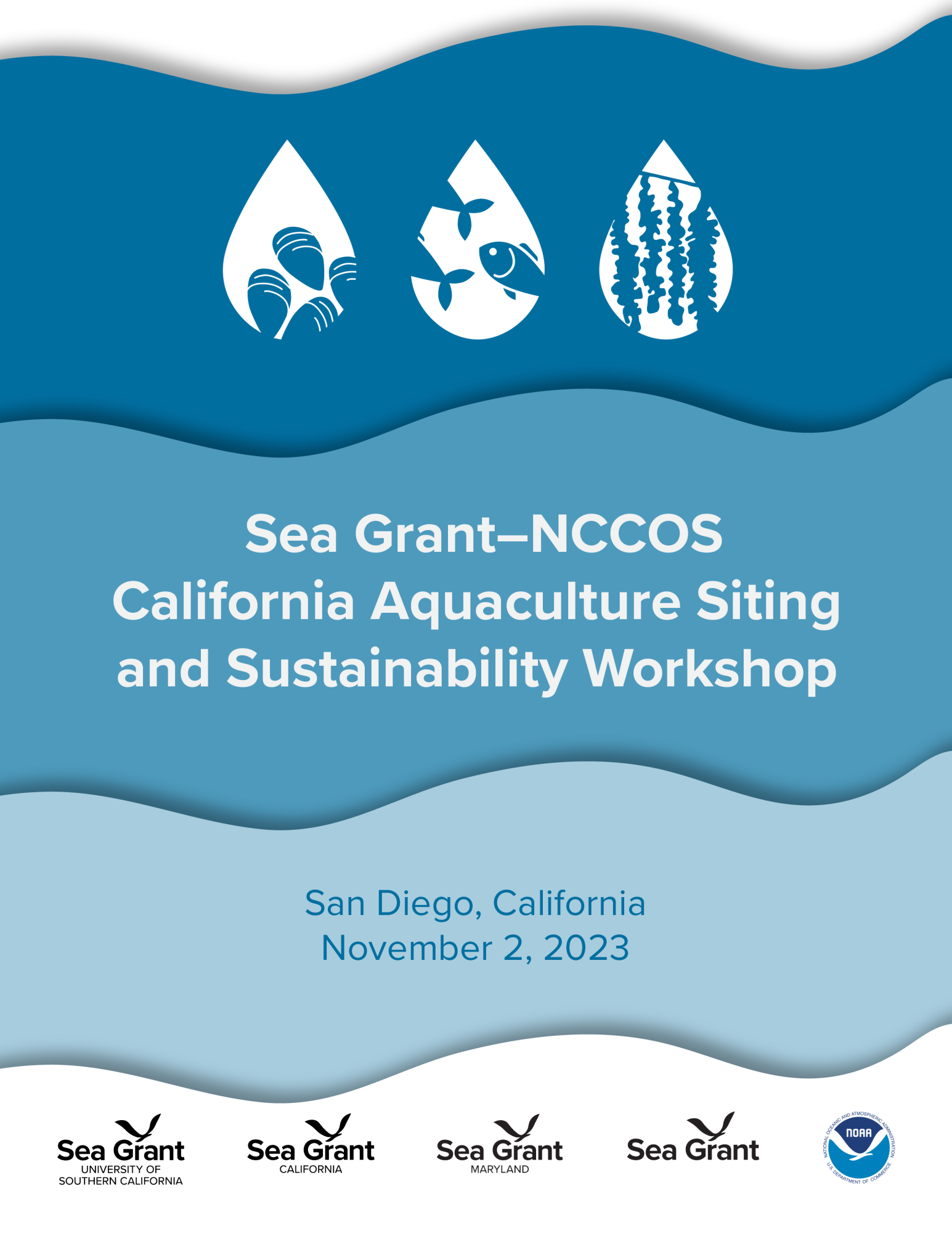Knauss legislative fellowships in Congress help build careers — and they're fun and educational. See our video and fact sheet for details.
Sea Grant-NCCOS California Aquaculture Siting and Development Workshop

Dates: November 2, 2023 (In-person), January 22, 2024 (Virtual)
Locations: San Diego, California (Hubbs-SeaWorld Research Institute Headquarters) and Zoom
Sponsored by National Sea Grant Office, NOAA National Centers for Coastal Ocean Science (NCCOS), Maryland Sea Grant, California Sea Grant, and Hubbs-SeaWorld Research Institute.
Brief Summary of the Workshop
MDSG and NOAA NCCOS hosted a one-day, in-person workshop on November 2nd, 2023, as well as a three-hour asynchronous virtual workshop on January 22nd, 2024 with local coastal-ocean community groups throughout California. Workshop participants were invited from federal, state, and local governments, academic institutions, aquaculture and commercial fishing industries, Extension, and non-profit organizations. Across both workshops, participants learned about NCCOS aquaculture siting tools and resources applicable to California and engaged thoughtfully in small-group discussions. Participants also learned about the current status of aquaculture in California, principles of knowledge production and co-creation, and data and resources available through both the Southern California Coastal Ocean Observing System (SCOOS) and Central and Northern California Coastal Ocean Observing System (CeNCOOS). Participants also heard about first-hand experiences with NCCOS tools and siting of aquaculture farms in California. Participants brainstormed features of an ideal aquaculture tool from their professional expertise and reflected on the two NCCOS tools presented throughout the day. Participants answered the following question about each tool:
How could you improve or modify existing tools to get closer to an ideal tool?
How would you like assistance (e.g., manuals, video tutorial, one-on-one technical assistance, etc.) with using these tools?
Would you use these tools for initial aquaculture site identification (i.e., strategic) or to begin aquaculture site development (i.e., tactical)?
How would you develop an ideal tool using a co-creation approach?
Is there a community group that is not usually included in tool development that should be?
In addition to discussions focused on tools, participants also reflected on strategies for collaboration/co-creation for developing effective tools and provided feedback on this project's process and future efforts.
This event was free of charge and was held both online and in-person. Participation was limited to invited coastal-ocean community groups.
Workshop Materials
All participants were provided with a briefing book of materials for both the in-person and virtual workshops.
Post-Workshop Materials
An overall workshop summary will be posted in the near future.
For further questions, contact:
Maryland Sea Grant Aquaculture
mdsg-aquaculture@umd.edu



